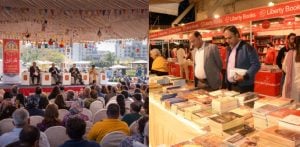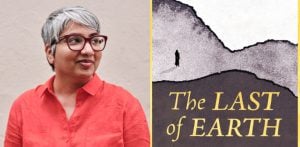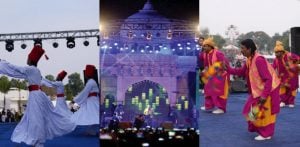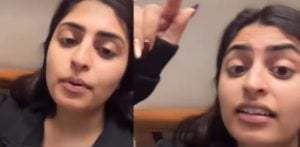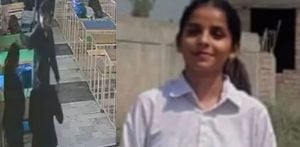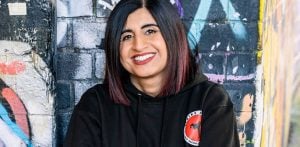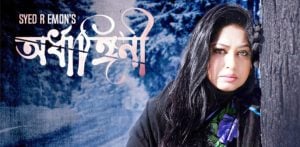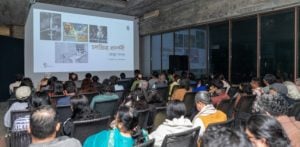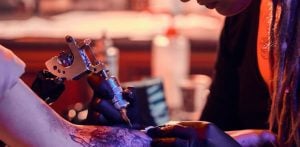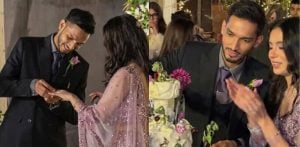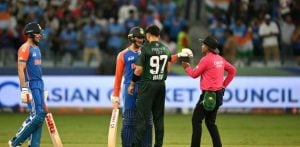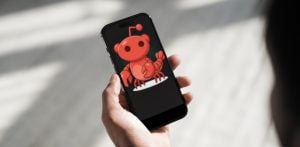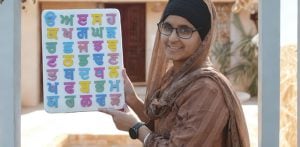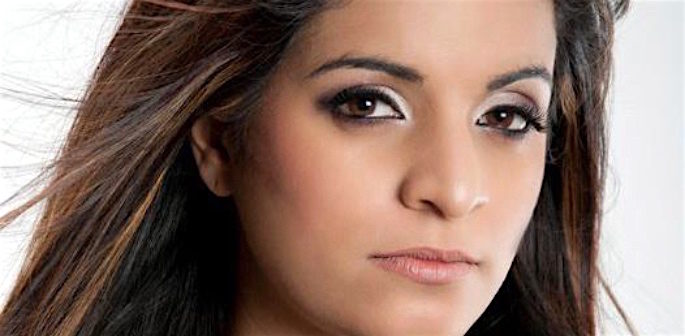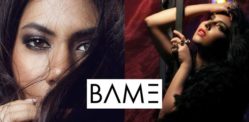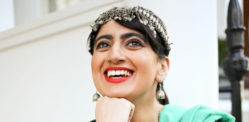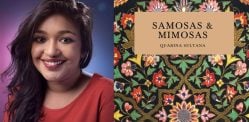"It is so important to see a range of strong intelligent woman"
British Punjabi published poet, Sunita Thind debuted her multicultural poetry book, ‘The Barging Buddhi and Other Poems’ (2020).
Published by Black Pear Press, ‘The Barging Buddhi and Other Poems’ is based on the perspective of South Asian women who are living between two cultures – British and Asian.
The collection also includes poetry based on cancer. In fact, Sunita Thind has battled Ovarian Cancer which became a muse for her poetry.
As well as a poet and a poetry performance artist, Sunita Thind was a Secondary English, History and Primary School teacher, workshop facilitator and is an advocate for Ovarian Cancer.
Through her poetry, Sunita Thind aims to use this art form as a medium to voice important issues that woman have to deal with. These include mental health, equality, cultural and social injustice, racism as well as achievements.
DESIblitz spoke exclusively to Sunita Thind about her love for poetry, ‘The Barging Buddhi and Other Poems’, her Ovarian Cancer journey and more.
What drew you to poetry?
The way I could express myself creatively and be as imaginative and free as I wanted, I love to write vividly and in free form and tell stories through poetry and not be restricted.
What has the feedback been like for your poetry and poetry performances?
People have been really lovely and complimentary about my poetry by calling it incredible, vivid hallucinatory and imaginative.
I am gaining confidence as a performance poet and have had great feedback as I have always been quite confident talking in public or in front of classes of children as I used to be a school teacher.
Why do you think it is important for BAME representation in poetry and media?
People of South Asian and BAME backgrounds are hardly represented in the media, it’s getting better but there needs to be more done.
We are not just a fashion trend or the next ‘in vogue thing’ we are not objects to be fetishised, used as ornaments or accessories to be exoticised or orientalised.
We have voices, thoughts, opinions, views and feelings that can be articulated into beautiful poetry and prose. The publishing industry needs to do better and give more people of colour a voice.
We have a rich heritage, culture and history that we should be proud and that should be well documented and publicised.
Speaking about which poem is the most personal to her, Sunita Thind revealed:
‘The Barging Buddhi’ as it was inspired by one of my grandparents who is an inspiring, strong, wonderful and kind Indian Malay matriarch.
Can you explain how you wrote/inspiration behind the poem, ‘Dusky Daughters’?
I am so sick of colourism not just rampant in other cultures but also South Asian communities who think white is might, being fairer means that it gives you more privilege and beauty when it doesn’t.
Why are people trying to look Caucasian when they should be proud of their skin tone and ancestry and not penalise and be prejudice to people who are darker or a different caste.
“We should celebrate our skin tone no matter what it is.”
‘Bollywood Blaze’ focuses on the impact of the Bollywood industry. How important is change in that domain?
It is so important to see a range of strong intelligent women who are diverse in looks, skin tone and body shape to show that we don’t all need to be the perfect size zero, milky skinned green-eyed models.
Skin whitening, body shaming, colourism etc. are all toxic and shameful.
‘Obey Doll’ targets toxic masculinity. Was this something you personally experienced?
Yes, unfortunately throughout my life and culture I was told you are a girl, you are the cook and cleaner while the boys get to go off and play.
When I questioned gender roles I was told that was how it was. It is not right, does not represent equality, men and women should be equal in all areas of life.
For someone who has not yet read your work, what can they expect?
You can expect to read an eclectic range of poems from the point of view of South Asian female traversing two cultures British and Punjabi as well as navigating Ovarian Cancer and other subjects.
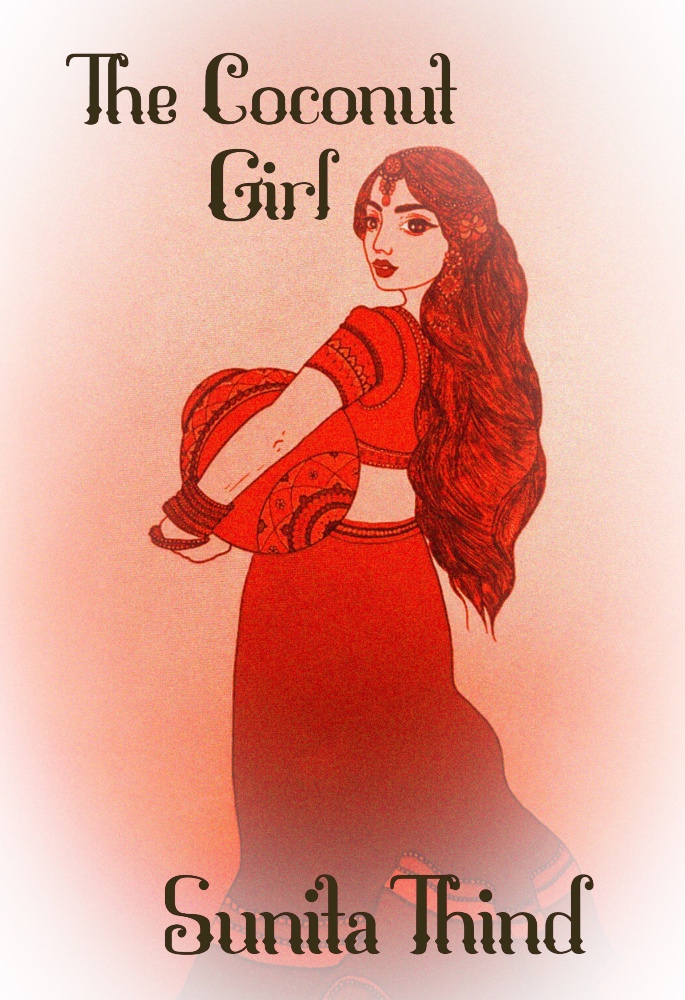
How has Covid-19 impacted your work?
I have had to release two books during Covid while having chemo, surgery and Covid myself.
Its been very challenging but also very liberating as it has given me a focus away from cancer.
I am more than my cancer. I also have an amazing second collection of poems coming out by Wild Pressed Books called ‘The Coconut Girl’ (2020) available here from November 2, 2020.
What was it like to be in National Media?
It was amazing to have that type of attention from the national press and to get that amount of attention was wonderful and overwhelming.
I was also aware I was spreading an important message about Ovarian Cancer awareness and how many female BAME/South Asian voices are not heard in the media on Cancer enough.
“We are not represented equally or as we should be.”
Can you explain your Ovarian Cancer journey?
As a young woman of colour and Punjabi British descent diagnosed with Ovarian Cancer at just 33 years old which is very rare and almost unheard of.
I had 11 litres of fluid drained from my chest and abdomen, with the doctors thinking it was Ascites. Unfortunately, there was a 9cm cyst on my ovary that had ruptured.
I had to have my left ovary removed, the cyst and my appendix. I could not have my eggs frozen before chemotherapy, two cystectomies, fertility treatment with eight eggs frozen and almost a few years later I thought I was free.
After endless scans, blood tests, x-rays, appointments and hospital visits I seemed to be doing well. My life came to a complete standstill when after my second cystectomy in February 2020 that the Ovarian Cancer was back.
I was pressured into thinking that my best option was hysterectomy but I fought to keep my womb which luckily was healthy.
After removing an inflamed lymph node, piece of fat and my cancerous ovary I had to wait for the results of the lymph node.
This was benign, now being menopausal at 37, I cannot have Hormone Replacement Therapy, am going through chemotherapy again where I will lose my hair and I contracted Covid which luckily I survived.
I was pressured by my mother to keep my illness quiet as it is seen shameful to announce this and would dishonour and shame my Punjabi family and myself.
As a woman of South Asian descent, I have had a lot of social, cultural, familial and religious restrictions put on me.
As well as racism and lack of cultural understanding in dealing with health services, hospitals, charities and other organisations. I also had to fight to get funding for fertility treatment.
Sunita Thind’s poetry collection certainly raises awareness for South Asian women which is paramount and reflective. ‘The Barging Buddhi and Other Poems’ is available here.



